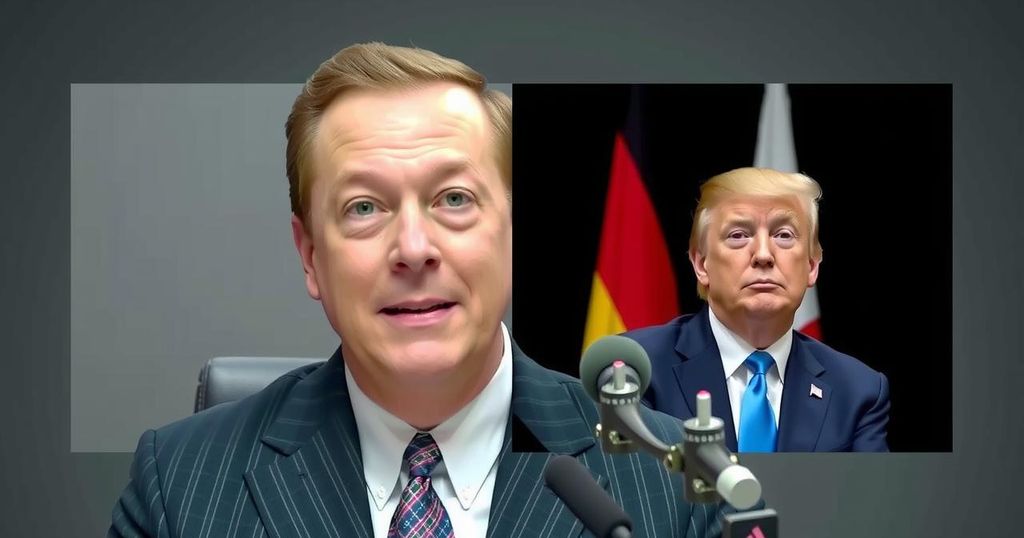Elon Musk Promotes Far-Right AfD Party in Controversial X Livestream

On January 9, 2025, Elon Musk livestreamed a conversation on X with Alice Weidel, co-leader of Germany’s far-right AfD party, endorsing its political agenda ahead of the German national election. Musk’s remarks have sparked concerns over foreign influence in politics as the AfD gains traction among voters, further complicating the discussion surrounding free speech and the responsibilities of social media giants.
On January 9, 2025, during a livestream on X (formerly Twitter), billionaire entrepreneur Elon Musk engaged in a conversation with Alice Weidel, the co-leader of Germany’s far-right Alternative for Germany (AfD) party, which has garnered increasing attention amidst an upcoming national election. With an audience peaking at over 200,000 viewers, Musk publicly recommended that voters support the AfD, aligning with the party’s stances on taxes, immigration, and energy policies.
Throughout the discussion, Musk asserted that Weidel is a reasonable candidate while making claims that the AfD’s views reflect common sense. They both articulated their opposition to high taxation and the shutdown of nuclear energy, with Weidel emphasizing the need for more discourse around the party’s platform, contrasting it with historical precedents from Germany’s past. While the AfD is under scrutiny for potential extremism, Musk’s backing raises alarms about foreign influence on political dynamics.
Musk’s prior endorsements of the AfD and his critical remarks regarding Chancellor Olaf Scholz’s governance have contributed to a controversial profile. The European Commission has expressed concerns regarding the implications of Musk’s statements, particularly in light of X’s compliance with the Digital Services Act, aimed at curtailing misinformation and harmful content. As the AfD continues to rise in popularity amid broader dissatisfaction with mainstream parties, questions linger regarding the ramifications of this kind of political engagement from influential figures like Musk.
The Alternative for Germany (AfD) party has experienced a trajectory of growth since its inception in 2013, originally capitalizing on opposition to Eurozone bailouts before transitioning to a strong stance against immigration, particularly during the 2015 refugee crisis led by Angela Merkel’s administration. The party’s increasing visibility and subsequent rise in popularity can be attributed to growing dissatisfaction with the current government led by Olaf Scholz, alongside a shifting political landscape in Europe where far-right ideologies are gaining traction. Given that the upcoming election in Germany is framed against this backdrop of political discontent, Musk’s engagement with Weidel poses potential ramifications for both candidates and the broader electoral process.
The livestreamed conversation between Elon Musk and Alice Weidel highlights the complex interplay of social media influence within European politics, underlined by the AfD’s controversial position as a mainstream party. Musk’s endorsement and promotional comments towards the AfD, particularly just ahead of a national election, evoke significant concern regarding the role of prominent figures in shaping political narratives abroad. The intersection of technology, media, and politics continues to raise critical questions about accountability and the potential impacts of foreign intervention in domestic political affairs.
Original Source: apnews.com





